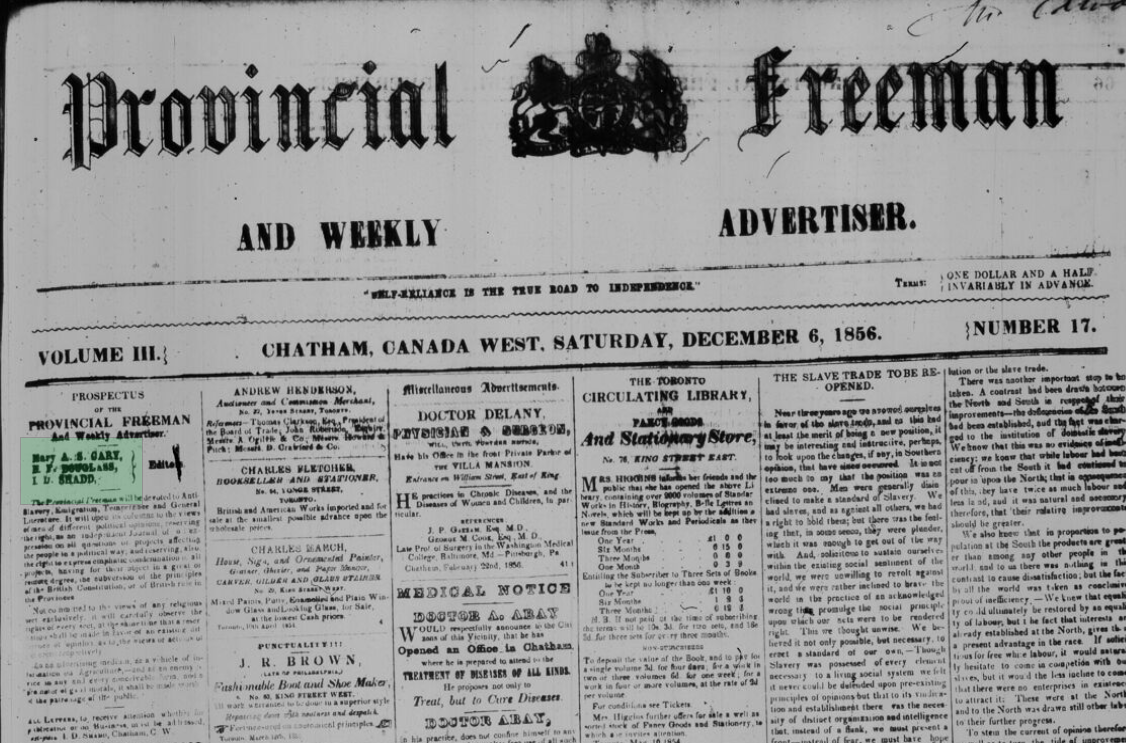|
[Originally published on Facebook on 17 February 2021]
Last week, we talked about Mary Shadd Cary’s A Plea for Emigration. Today, I bring her editorial about the United States presidential election in 1856. Here is a passage: “Instead of a handful of abolitionists, from motives of humanity, the world beholds millions of abolitionists from necessity, and depend upon it there will be hard and bloody work, before the struggle terminate[s]! We heartly deplore the prospect. There is no one so thoroughly depraved! as to love violence for its own sake, but the oppressor of the colored man has forced the necessity” Her words are provocative, aren't they? There will be “hard and bloody” work. Violence will happen whether one protests against slavery or not. The election result shows that slavery is not going to be solved through politics. There is a moral difference among people. It is not a matter of opinion or of facts, it is a matter of moral principles. On one hand, some people believe that slavery is morally acceptable; on the other hand, some do not. Those who do not happen to be oppressed by the former. How to solve that when you do not have rights to protect you and the only people who can recognize those rights into laws are against you? In such scenario, Mary Shadd Cary says that you do not solve this problem without “hard and bloody work”. Violence for its own sake is not morally justifiable, but if all forms of peaceful resolutions are doom to fail, violence as a mean to a greater good may be. It is interesting and cool to see that Philosophy can be found in a newspaper editorial. Next week, we will see that it can be found in a sermon. For historical background: in 1856, James Buchanan was elected the 15th president of the United States. Mary Shadd Cary’s editorial was written two weeks after the election result. She said that “A fearful thing is the result of that last presidential election!”. For her, United States politics was not about being Republican or Democrat; it was about being abolitionist or pro-slavery. Since 1854, the growing apathy towards slaved people, the persecution of abolitionists, and the inefficacy of debates on whether or not slavery was morally acceptable had caused violent riots such as the one known as “Bleeding Kansas”. Mary Shadd Cary’s editorial was predicting that things were going to get worse. Five years after Mr. Buchanan’s election, the United States entered in civil war. --MM Picture retrieved from Canadiana - by Canadian Research Knowledge Network (CRKN) – for research use:
0 Comments
Leave a Reply. |
Authors
Jacinta Shrimpton is a PhD student in Philosophy at the University of Sydney. She is co-producer of the ENN New Voices podcast Archives
May 2024
Categories
All
|

 RSS Feed
RSS Feed